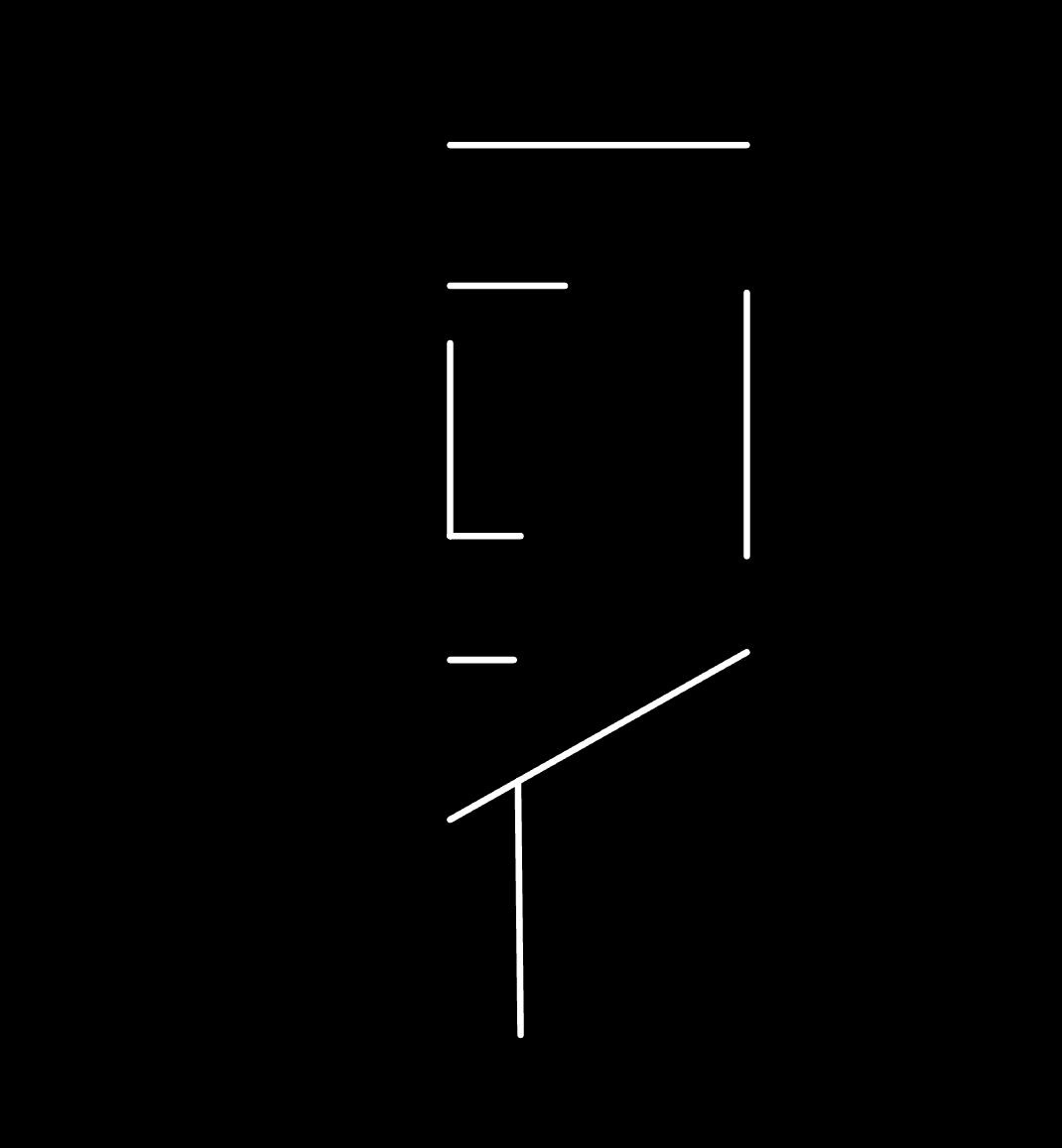zkVerify ZK App and Infra Builders
zkVerify ZK App and Infra Builders
Build Apps and Infra with the newest ZK Proofs!!
The zkVerify Foundation is thrilled to announce an online hackathon for builders!
We’re inviting developers with experience in building ZK applications and infrastructure to create innovative and impactful projects using zkVerify’s public, permissionless ZK proof verification blockchain.
zkVerify is in testnet, and is optimized for ZK Proof Verifications of many types of ZK Proofs, including:
- Groth16 with either BN-254 or BLS-12-381 curve
- UltraPlonk version 31
- Space and Time Proof of SQL on BLS-12-381 curve
- RiscZero STARK version 1.0.1
With zkVerify set to launch on mainnet in Q1 2025, we’re eager to support the development of applications that demonstrate the power of our platform. We expect to have a Grants program after mainnet launch.
This hackathon offers cash prizes for individuals and teams building Web2 and Web3 applications that leverage zkVerify for zero-knowledge proof verification. We also welcome tools and improvements that enhance zkVerify itself!
zkVerify is a key layer in the tech stack, enabling powerful, cost-effective applications that incorporate proofs for transparency and trust. Whether you’re working on provable randomness, fair gaming, AI training data verification, or secure private communications, zkVerify lets you achieve public proof verification quickly and affordably.
Timeline
15 November
- Announcement
- Developers start forming teams on Discord
- Explore Technical Stack
- Ask questions of the zkVerify team
19 Nov - 5 Dec
Workshops, Presentations, AMA's, X spaces
- 19 Nov - zkVerify Overview and Example Use Cases
- 21 Nov - zkVerify Architecture Overview and Developer tools
- 25 Nov - How to Use zkVerify as decentralized proof verifier for Web2 games
- 26 Nov - Partner panel - Hyperbridge and others
- 27 Nov - How to Integrate zkVerify with EVM Smart Contract dApp
- 3 December - zkVerify zkHack presentation
- 5 December - Technical AMA session
10 December - Project Submission Deadline
11 December - Sponsors Voting on Projects
12 December - Live Award Presentation
Technical Stack
The zkVerify Hackathon provides developers with a robust technical framework:
-
zkVerify Blockchain: At the core of this hackathon is the zkVerify blockchain, constructed on the Substrate framework. This blockchain integrates specialized verifier pallets that enable rapid and cost-effective verification of zero-knowledge proofs. These proofs, once verified, are:
- Posted to the Blockchain: Making them publicly available and accessible via an API or blockchain explorer for transparency and auditability.
- Aggregated Verifications: Periodically, these verifications are batched and forwarded to zkVerify smart contracts deployed on multiple EVM testnets like Ethereum Sepolia, Apchain Curtis, Horizon EON, and Arbitrum Sepolia, ensuring compatibility and interoperability.
-
Project Diversity: The applications leveraging zkVerify can span a broad spectrum:
- Web2 Applications: These can include centralized applications that require proof of computation, like ensuring the fairness of a raffle or the randomness in a game through verifiable randomness.
- Web3 Smart Contract dApps: Here, ZK proofs enhance smart contract functionalities, particularly for privacy-focused applications like:
- Private messaging systems
- Secure and anonymous voting or polling mechanisms
- Darkpool trading
- NFT trading
-
Development Tools:
- zkVerify JS: A JavaScript library available on NPM, designed to streamline the integration of ZK proofs into your applications, making development more accessible and efficient.
Definition of Complete Application for Submittal
- Submitted to Devfolio before the deadline of 10 Dec midnight UTC
General Rules
- Projects must be created by the individual or team entering them in the contest.
- No project that was submitted for an award in a previous zkVerify hackathon is qualified.
- No project that re-uses code with a non-permissive license.
- Project code must be created after the hackathon start date of 15 Nov 2024.
- Project code should show regular commit history during the hackathon.
- Must integrate zkVerify for ZK proof verification with any of the verifiers available as listed at
- Groth16 with either BN-254 or BLS-12-381 curve
- UltraPlonk version 31
- Space and Time Proof of SQL on BLS-12-381 curve
- RiscZero STARK version 1.0.1
- Any others added during the hackathon available on zkVerify
Web2 Applications
- The Application should be functional with the end user should only required interact with the application frontend
- The user can be required to have funds on a zkVerify wallet and connect their wallet to use the Application
- Submit source code via a public GitHub repository
- A clear README file with a short description of:
- How to set up and use the dApp
- A clear use cases for ZK proofs
- Team and background
- Optional Architectural diagram
- Example: zkMastermind game https://zkmastermind.zkVerify.io/
Web3 dApps
- The dApp must be built on Ethereum Sepolia, EON Gobi, or ApeChain Curtis
- The smart contract should interact with the zkVerifyAttestation contract instance deployed on that chain in order to verify proof of correctness.
- The dApp should be functional in one of two ways:
- Preferred - abstract the use of zkVerify
- the end user should only interact with the dApp frontend and shouldn't be required to have funds on zkVerify or a Substrate wallet.
- The dApp backend should take care of submitting the zk-proof to zkVerify and handling the event emitted by zkVerify upon successful verification.
- Optional - require user to have both EVM and zkVerify wallet to use dApp
- Preferred - abstract the use of zkVerify
- Submit source code via a public GitHub repository
- A clear README file with a short description of:
- How to set up and use the dApp
- A clear use cases for ZK proofs
- Team and background
- Optional Architectural diagram
zkVerify Tools and Improvements to existing zkVerify Code
- Code that makes integrating applications with zkVerify easier for developers. Examples
- This can be an abstraction front end for zkVerify
- Can be a library that makes zkVerify easier to use.
- Can be an integration into a Domain Specific Language development framework
- Can be an upgrade to web3 development tools to make it easy to integration zkVerify into a web3 application
- Another useful improvement that makes developing with zkVerify more straightforward.
- Submit source code via a public GitHub repository
- A clear README file with a short description of:
- How to set up and use the dApp
- A clear use cases for ZK proofs
- Team and background
- Optional Architectural diagram
Judging Standards
Judging will be done by a panel of judges drawn from the zkVerify project and Co-sponsoring projects
- Functionality (25%)
- Does the project successfully achieve its intended purpose using zkVerify?
- Is the zkVerify integration sound and working correctly?
- Is the project bug-free and stable during testing?
- Innovation & Creativity (25%)
- How innovative is the project in terms of utilizing zero-knowledge proofs?
- Does it push boundaries or introduce novel approaches to privacy and trustless interaction?
- Does it solve a new problem or offer a unique application for ZKPs?
- Technical Complexity (20%)
- Did the team overcome significant technical challenges in the project?
- Is there a balance between sophistication and efficiency (e.g., how computationally intensive the solution is)?
- Usability & User Experience (10%)
- Is the project easy to use and accessible to its target audience (e.g., developers or end-users)?
- Does it have a clear and simple user interface (UI) ?
- How well does it document how others can use or implement the solution?
- Team Collaboration & Presentation (10%)
- How well did the team work together to complete the project?
- Was the project’s presentation clear, and did it effectively communicate the technical features?
- Is the project well-documented for potential future development?
Resource Links
- zkVerify Hackathon on Devfolio
- zkVerifyJS: https://www.npmjs.com/package/zkVerifyjs
- zkVerify web app bootstrap command: npx @zkVerify/create-zkVerify-template
- zkVerify Website https://zkverify.io/
- zkVerify Documentation https://docs.zkverify.io/tutorials/tutorials/
- zkVerify github - https://github.com/zkVerify
Example applications
ZK Sudoku using Sindri for proving network https://sudoku.zkverify.io/
https://github.com/web3-master/zksnark-sudoku
ZK Mastermind as web application with zkVerify verification
https://zkmastermind.zkverify.io/
https://github.com/HorizenLabs/zkMastermind
zkVerify Documentation Links - Explorer, etc. https://docs.zkverify.io/relevant_links
Rules
Follow the Code of Conduct.
Find us on
Build Apps and Infra with the newest ZK Proofs!!
Runs from
Nov 20 - Dec 10, 2024
Happening
Online
Ended
About 1 year ago
The zkVerify Foundation is thrilled to announce an online hackathon for builders!
We’re inviting developers with experience in building ZK applications and infrastructure to create innovative and impactful projects using zkVerify’s public, permissionless ZK proof verification blockchain.
zkVerify is in testnet, and is optimized for ZK Proof Verifications of many types of ZK Proofs, including:
- Groth16 with either BN-254 or BLS-12-381 curve
- UltraPlonk version 31
- Space and Time Proof of SQL on BLS-12-381 curve
- RiscZero STARK version 1.0.1
With zkVerify set to launch on mainnet in Q1 2025, we’re eager to support the development of applications that demonstrate the power of our platform. We expect to have a Grants program after mainnet launch.
This hackathon offers cash prizes for individuals and teams building Web2 and Web3 applications that leverage zkVerify for zero-knowledge proof verification. We also welcome tools and improvements that enhance zkVerify itself!
zkVerify is a key layer in the tech stack, enabling powerful, cost-effective applications that incorporate proofs for transparency and trust. Whether you’re working on provable randomness, fair gaming, AI training data verification, or secure private communications, zkVerify lets you achieve public proof verification quickly and affordably.
Timeline
15 November
- Announcement
- Developers start forming teams on Discord
- Explore Technical Stack
- Ask questions of the zkVerify team
19 Nov - 5 Dec
Workshops, Presentations, AMA's, X spaces
- 19 Nov - zkVerify Overview and Example Use Cases
- 21 Nov - zkVerify Architecture Overview and Developer tools
- 25 Nov - How to Use zkVerify as decentralized proof verifier for Web2 games
- 26 Nov - Partner panel - Hyperbridge and others
- 27 Nov - How to Integrate zkVerify with EVM Smart Contract dApp
- 3 December - zkVerify zkHack presentation
- 5 December - Technical AMA session
10 December - Project Submission Deadline
11 December - Sponsors Voting on Projects
12 December - Live Award Presentation
Technical Stack
The zkVerify Hackathon provides developers with a robust technical framework:
-
zkVerify Blockchain: At the core of this hackathon is the zkVerify blockchain, constructed on the Substrate framework. This blockchain integrates specialized verifier pallets that enable rapid and cost-effective verification of zero-knowledge proofs. These proofs, once verified, are:
- Posted to the Blockchain: Making them publicly available and accessible via an API or blockchain explorer for transparency and auditability.
- Aggregated Verifications: Periodically, these verifications are batched and forwarded to zkVerify smart contracts deployed on multiple EVM testnets like Ethereum Sepolia, Apchain Curtis, Horizon EON, and Arbitrum Sepolia, ensuring compatibility and interoperability.
-
Project Diversity: The applications leveraging zkVerify can span a broad spectrum:
- Web2 Applications: These can include centralized applications that require proof of computation, like ensuring the fairness of a raffle or the randomness in a game through verifiable randomness.
- Web3 Smart Contract dApps: Here, ZK proofs enhance smart contract functionalities, particularly for privacy-focused applications like:
- Private messaging systems
- Secure and anonymous voting or polling mechanisms
- Darkpool trading
- NFT trading
-
Development Tools:
- zkVerify JS: A JavaScript library available on NPM, designed to streamline the integration of ZK proofs into your applications, making development more accessible and efficient.
Definition of Complete Application for Submittal
- Submitted to Devfolio before the deadline of 10 Dec midnight UTC
General Rules
- Projects must be created by the individual or team entering them in the contest.
- No project that was submitted for an award in a previous zkVerify hackathon is qualified.
- No project that re-uses code with a non-permissive license.
- Project code must be created after the hackathon start date of 15 Nov 2024.
- Project code should show regular commit history during the hackathon.
- Must integrate zkVerify for ZK proof verification with any of the verifiers available as listed at
- Groth16 with either BN-254 or BLS-12-381 curve
- UltraPlonk version 31
- Space and Time Proof of SQL on BLS-12-381 curve
- RiscZero STARK version 1.0.1
- Any others added during the hackathon available on zkVerify
Web2 Applications
- The Application should be functional with the end user should only required interact with the application frontend
- The user can be required to have funds on a zkVerify wallet and connect their wallet to use the Application
- Submit source code via a public GitHub repository
- A clear README file with a short description of:
- How to set up and use the dApp
- A clear use cases for ZK proofs
- Team and background
- Optional Architectural diagram
- Example: zkMastermind game https://zkmastermind.zkVerify.io/
Web3 dApps
- The dApp must be built on Ethereum Sepolia, EON Gobi, or ApeChain Curtis
- The smart contract should interact with the zkVerifyAttestation contract instance deployed on that chain in order to verify proof of correctness.
- The dApp should be functional in one of two ways:
- Preferred - abstract the use of zkVerify
- the end user should only interact with the dApp frontend and shouldn't be required to have funds on zkVerify or a Substrate wallet.
- The dApp backend should take care of submitting the zk-proof to zkVerify and handling the event emitted by zkVerify upon successful verification.
- Optional - require user to have both EVM and zkVerify wallet to use dApp
- Preferred - abstract the use of zkVerify
- Submit source code via a public GitHub repository
- A clear README file with a short description of:
- How to set up and use the dApp
- A clear use cases for ZK proofs
- Team and background
- Optional Architectural diagram
zkVerify Tools and Improvements to existing zkVerify Code
- Code that makes integrating applications with zkVerify easier for developers. Examples
- This can be an abstraction front end for zkVerify
- Can be a library that makes zkVerify easier to use.
- Can be an integration into a Domain Specific Language development framework
- Can be an upgrade to web3 development tools to make it easy to integration zkVerify into a web3 application
- Another useful improvement that makes developing with zkVerify more straightforward.
- Submit source code via a public GitHub repository
- A clear README file with a short description of:
- How to set up and use the dApp
- A clear use cases for ZK proofs
- Team and background
- Optional Architectural diagram
Judging Standards
Judging will be done by a panel of judges drawn from the zkVerify project and Co-sponsoring projects
- Functionality (25%)
- Does the project successfully achieve its intended purpose using zkVerify?
- Is the zkVerify integration sound and working correctly?
- Is the project bug-free and stable during testing?
- Innovation & Creativity (25%)
- How innovative is the project in terms of utilizing zero-knowledge proofs?
- Does it push boundaries or introduce novel approaches to privacy and trustless interaction?
- Does it solve a new problem or offer a unique application for ZKPs?
- Technical Complexity (20%)
- Did the team overcome significant technical challenges in the project?
- Is there a balance between sophistication and efficiency (e.g., how computationally intensive the solution is)?
- Usability & User Experience (10%)
- Is the project easy to use and accessible to its target audience (e.g., developers or end-users)?
- Does it have a clear and simple user interface (UI) ?
- How well does it document how others can use or implement the solution?
- Team Collaboration & Presentation (10%)
- How well did the team work together to complete the project?
- Was the project’s presentation clear, and did it effectively communicate the technical features?
- Is the project well-documented for potential future development?
Resource Links
- zkVerify Hackathon on Devfolio
- zkVerifyJS: https://www.npmjs.com/package/zkVerifyjs
- zkVerify web app bootstrap command: npx @zkVerify/create-zkVerify-template
- zkVerify Website https://zkverify.io/
- zkVerify Documentation https://docs.zkverify.io/tutorials/tutorials/
- zkVerify github - https://github.com/zkVerify
Example applications
ZK Sudoku using Sindri for proving network https://sudoku.zkverify.io/
https://github.com/web3-master/zksnark-sudoku
ZK Mastermind as web application with zkVerify verification
https://zkmastermind.zkverify.io/
https://github.com/HorizenLabs/zkMastermind
zkVerify Documentation Links - Explorer, etc. https://docs.zkverify.io/relevant_links
Find us on
$26,000
Available in Prizes
$26,000
Available in Prizes
Speakers & Judges
Zain Cheng
CTO, Horizen Labs
Seun Lanlege
Founder, Polytope Labs
Willem Olding
Research and Development, ChainSafe Systems
David of Earth
Co-Founder, Hyperbridge
Electric KC
CEO Trailblaze, Trailblaze
All speakers & judges
Speakers & Judges
Zain Cheng
CTO, Horizen Labs
Seun Lanlege
Founder, Polytope Labs
Willem Olding
Research and Development, ChainSafe Systems
David of Earth
Co-Founder, Hyperbridge
Electric KC
CEO Trailblaze, Trailblaze
All speakers & judges
FAQs
Team size
1 - 6
Registration costs?
Nada.
Team size
1 - 6
Registration costs?
Nada.
Got more questions? Reach out to [email protected]
FAQs
Team size
1 - 6
Registration costs?
Nada.
Team size
1 - 6
Registration costs?
Nada.
Got more questions? Reach out to [email protected]









